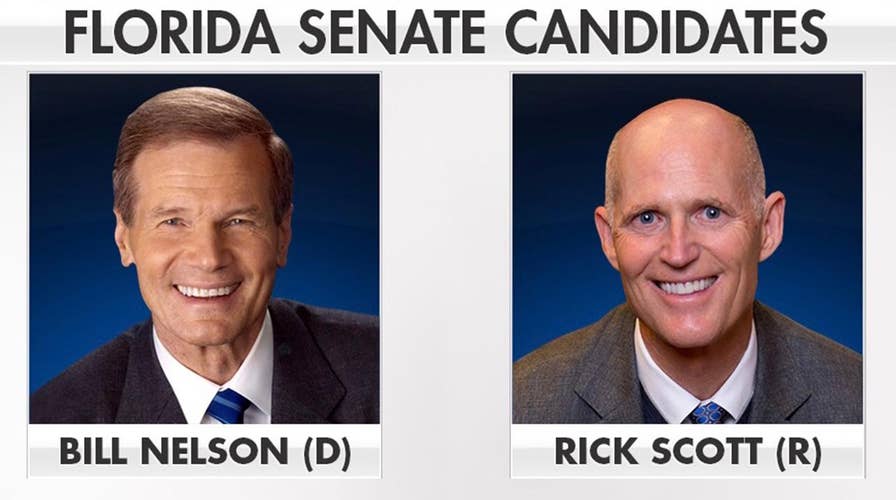Nelson, Scott gear up for competitive Florida Senate race
Three-term Senator Nelson faces the toughest re-election of his career in two-term Governor Scott. Political analyst Susan MacManus argues Nelson's strategy is to wait until after the August primary, when Floridians are more focused on the election, to hit the ground running and campaign on a grassroots level in what's expected to be the most expensive Senate race in U.S. history.
TAMPA, Fla. – When Florida Gov. Rick Scott announced he was running for Senate, the incumbent, Sen. Bill Nelson, confidently assured his supporters that he would emerge victorious again in November.
Privately though, Democrats are worried Nelson is getting out-muscled early-on by the governor. The Democrat, who has held the seat since 2000, will face the toughest political campaign of his life leading up to the Nov. 8 election.
Scott announced his candidacy April 9 to much fanfare, telling hundreds of supporters that packed into an Orlando warehouse that the concept of sending career politicians to Washington “has got to stop.”
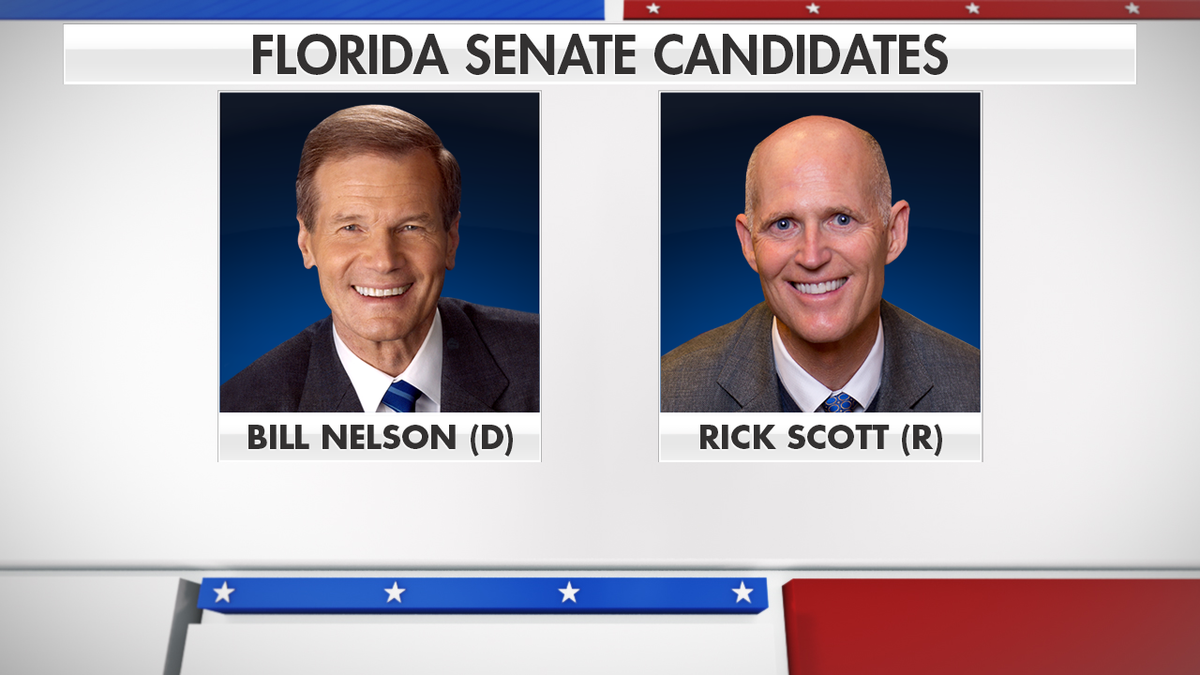
Democrats have little room for error as they try to take back control of the U.S. Senate, and the winner of Florida’s closely watched race between incumbent Bill Nelson and Rick Scott could tip the balance on Capitol Hill. (Fox News)
That announcement kicked off what is expected to be the most high-stake and expensive Senate race in history. Nelson has comfortably held the seat for almost two decades, and political analysts say that could work against him – because many younger voters don’t know much about him.
“Without a doubt, Nelson has got to reintroduce himself to a lot of Floridians who aren’t as familiar with him as people who have lived here a long while,” said political analyst Susan MacManus. “… He does have to campaign harder than he’s done in a very long time for the reason of a lot of people don’t know him well.”
Nelson is the only statewide elected Democrat left in the nation’s largest swing state. The senator hasn't had a competitive race since 2000, as he won the open seat in 2000 with 51 percent, was re-elected in 2006 with 60 percent and in 2012 with 55 percent of the vote.
With Florida’s 10 media markets and 27 congressional districts, any candidate with statewide aspirations needs two things to be competitive: name identification and money.
Scott's entrance put Democrats, who are trying to flip control of the Senate, on defense.
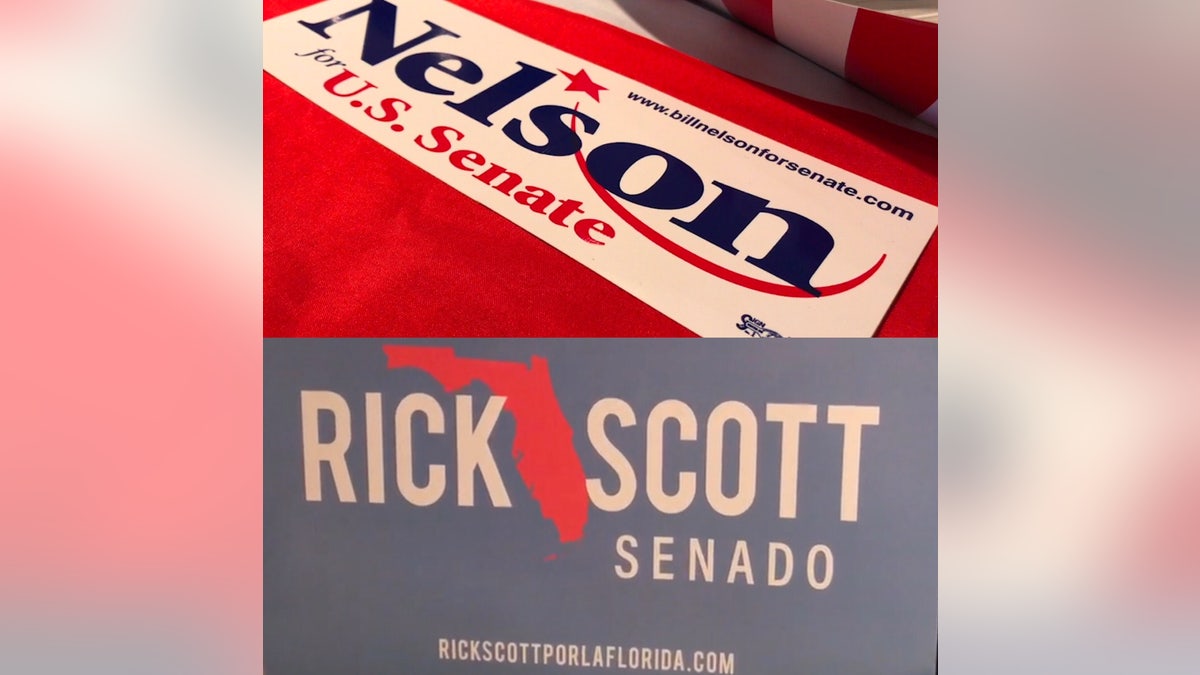
With Florida’s 10 media markets and 27 congressional districts, any candidate with statewide aspirations needs two things to be competitive: name identification and money. (Fox News)
“There is a name ID lag that he has currently, so he’s got to come out and tell people again who he is...and why he’s been in state-elected office all these years,” said Jessica Ehrlich, a Democratic strategist and former congressional candidate.
One of Scott’s biggest campaign strengths is his personal money and his willingness to spend it. The governor’s personal net worth of more than $150 million leaves little doubt that he will spend heavily on the Senate race.
So far, Scott has released 10 television ads, compared to one online and social media ad released by Nelson on May 29. The Scott campaign has reportedly spent over $13 million on ads since his Senate run announcement eight weeks ago.
“I’m going to do everything I can to raise money to run ads all summer long,” Scott said at a campaign event on Monday. “I’m going to work my tail off to make sure I’m the next U.S. Senator from Florida.”
The Democratic Senatorial Campaign Committee recently made a $2.2 million ad buy in support of Nelson and the Senate Majority PAC has spent more than $2 million to run a statewide TV ad portraying Nelson as a senator protecting Florida's interests on health care and Social Security.
Nelson ended the first quarter of the campaign with $10.6 million, while Scott hasn’t had to file a fundraising report yet. The next candidate filling deadline is July 15.
Experts say Nelson is following what is considered a traditional campaign approach – laying low during the summer, when political interest is low, and then launching an all-out campaign blitz after the August primary.
But with every ad released by Scott, Nelson's absence from the airwaves becomes more noticeable.
“Do you go the traditional route and assume it’s OK to wait until after the August primary? Versus the sort of new approach – you’ve got to brand your opponent quickly before you get branded to the point of no return,” MacManus said. “There’s a struggle within the Nelson campaign about that, and also with Florida Democrats themselves.”
Nelson, who famously went through NASA training and spent six days orbiting Earth, is also thought to be factoring in the swing state's hefty campaign costs to prepare for the race that’s estimated to reach up to $200 million.
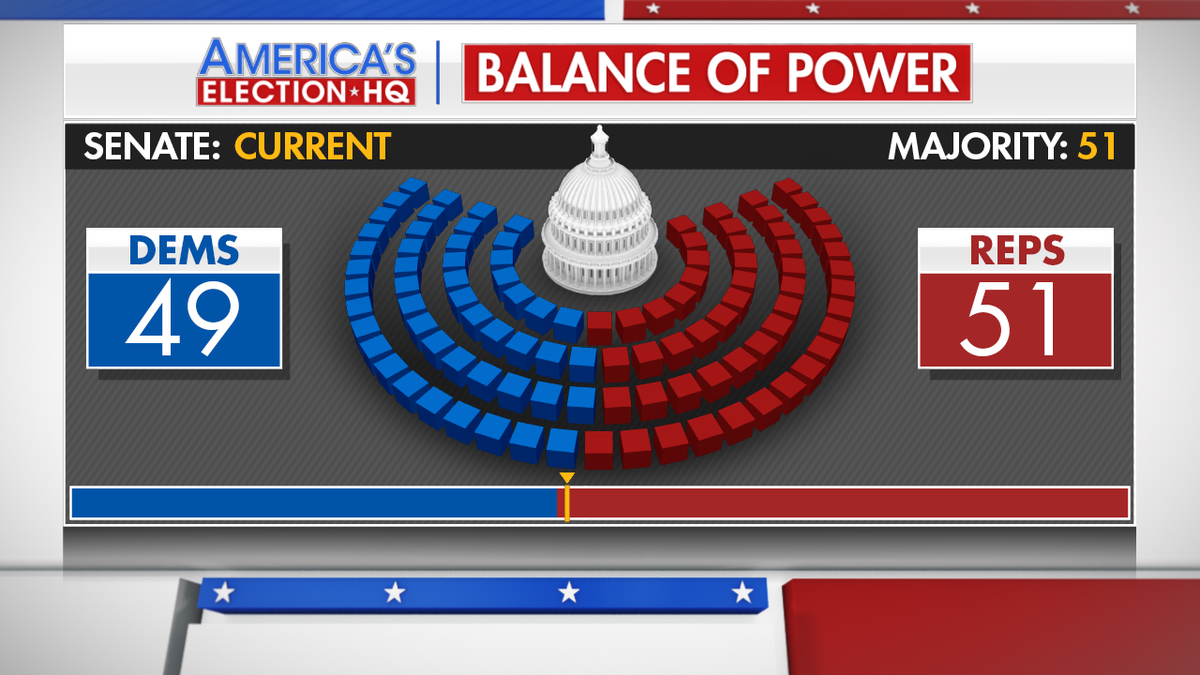
For Democrats to take back control of the U.S. Senate, they must keep all of their seats and win a minimum of two Republican seats in play. (Fox News)
“Florida is an enormous state, our statewide races are expensive to begin with,” Ehrlich said. “I think they realize it’s going to be a long and drawn out campaign that’s going to require a lot of messaging. So to be strategic and use your money wisely is always a good idea.”
In a statement to Fox News, a Nelson campaign spokesperson said Florida voters are well aware of Scott’s controversial history.
"Rick Scott spends tens of millions of dollars of his own money every election,” the spokesperson said, “but Floridians know his record of putting himself ahead of the future of Florida.”
Numerous outside groups are expected to invest heavily in Nelson as Nov. 8 nears, but it’s unclear whether Senate Majority leader Mitch McConnell's decision to cancel most of August recess, a traditional time when candidates return to their districts to campaign ahead of the primary election, will hurt him.
The latest Real Clear Politics poll averages has Nelson leading by almost two points over Scott.
The stakes in the race are high, particularly in a swing state like Florida. Experts say the results will have national repercussions.
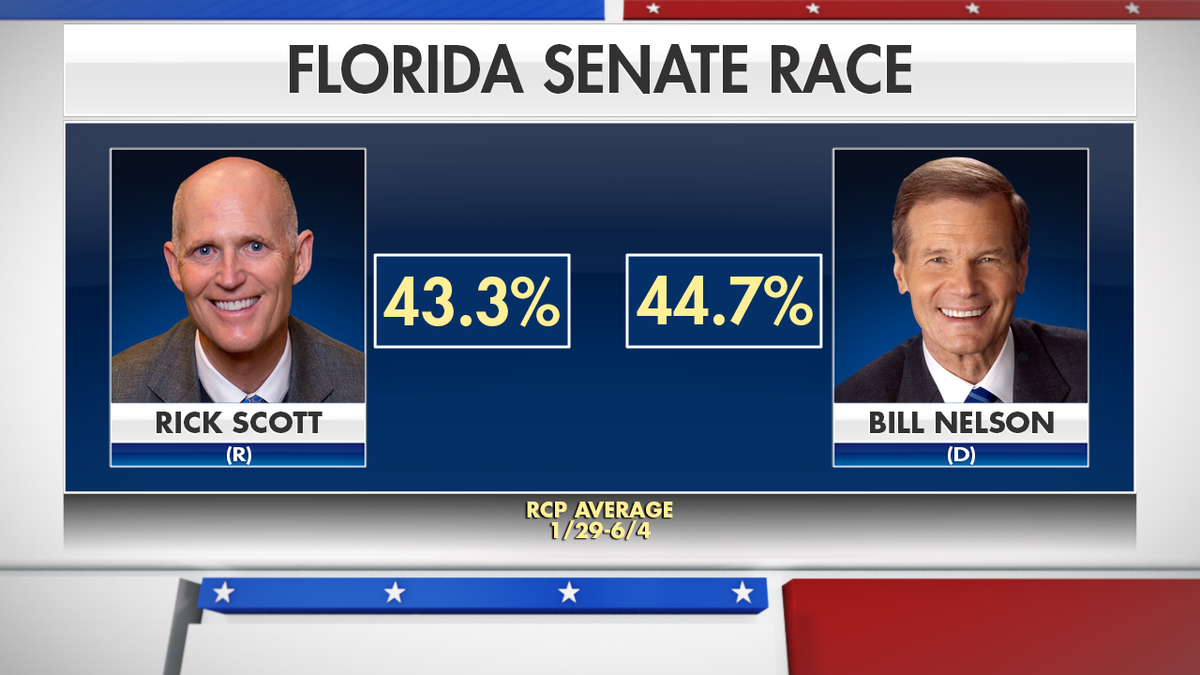
Polls show a toss-up race in the nation's largest swing state and few expect that will change much before Election Day. (Fox News)
“Every Democrat knows that if Democrats cannot hold on to the Senate seat currently held by Nelson,” MacManus said, “their chances of winning back control of the U.S. Senate are very slim.”








































